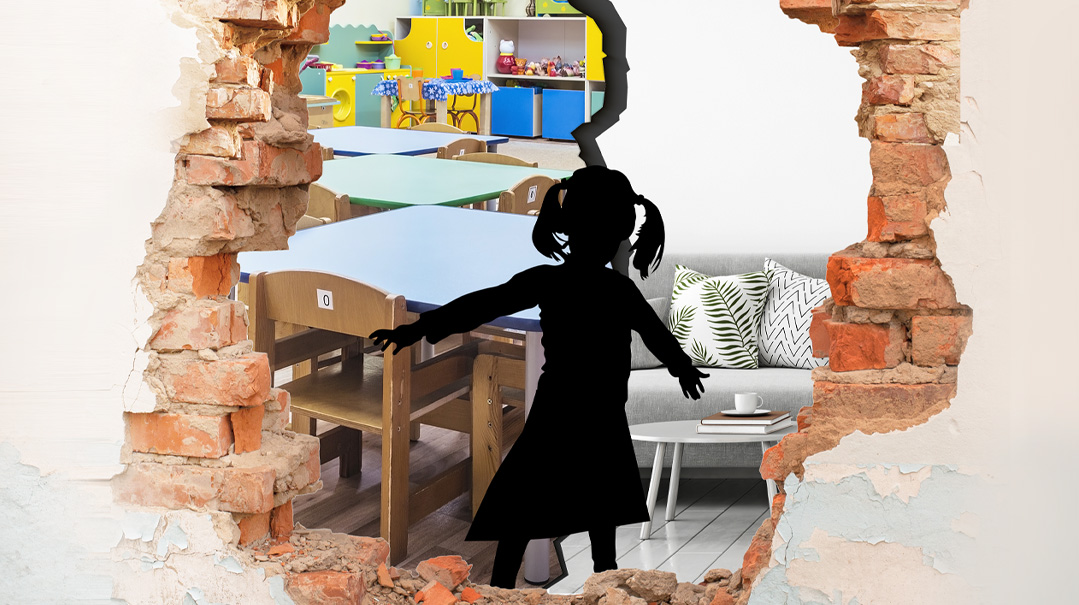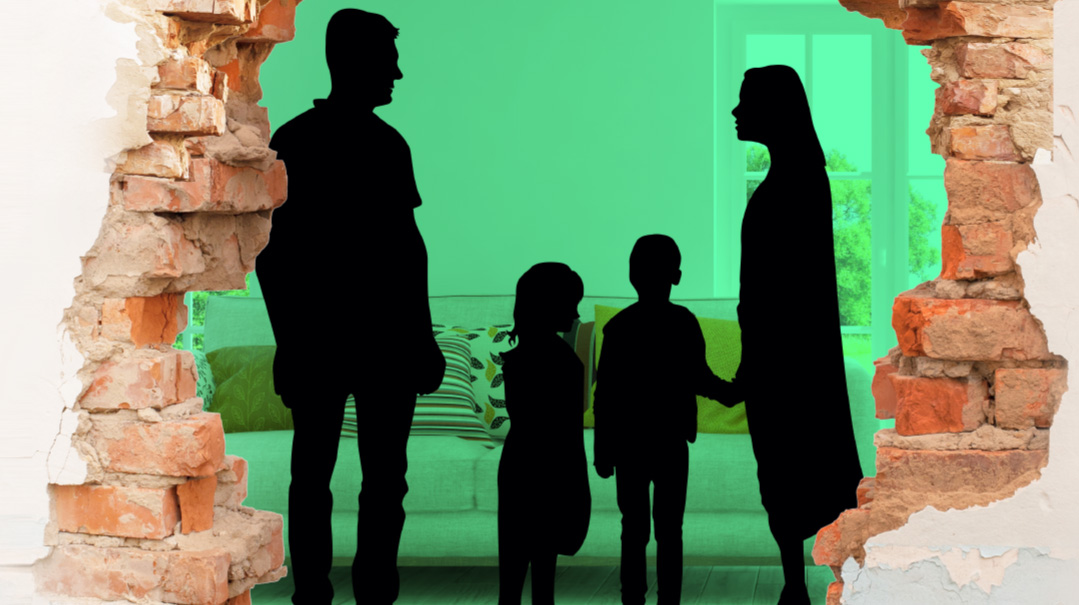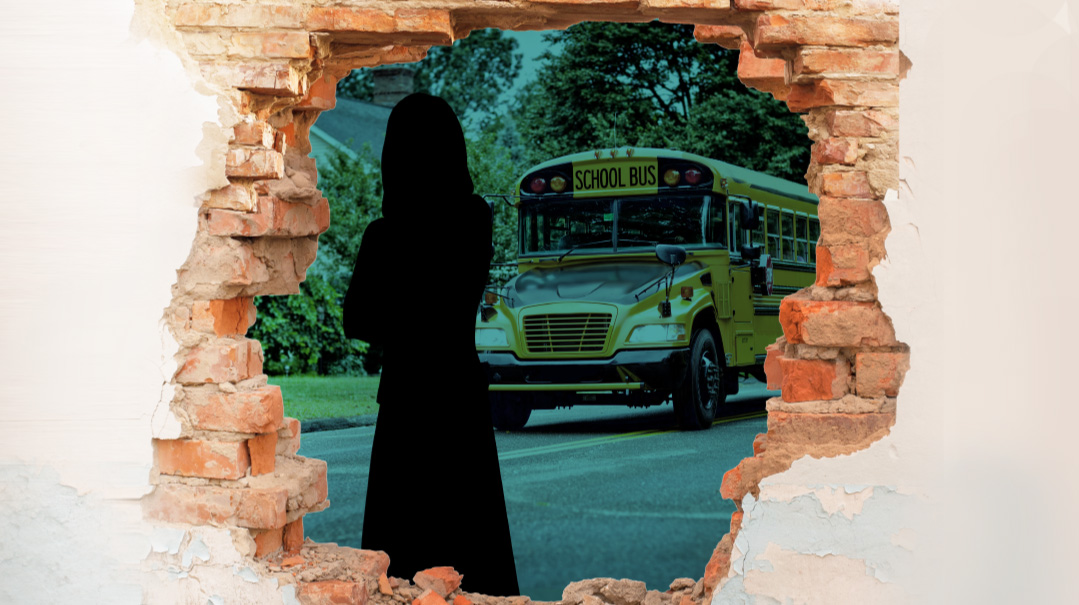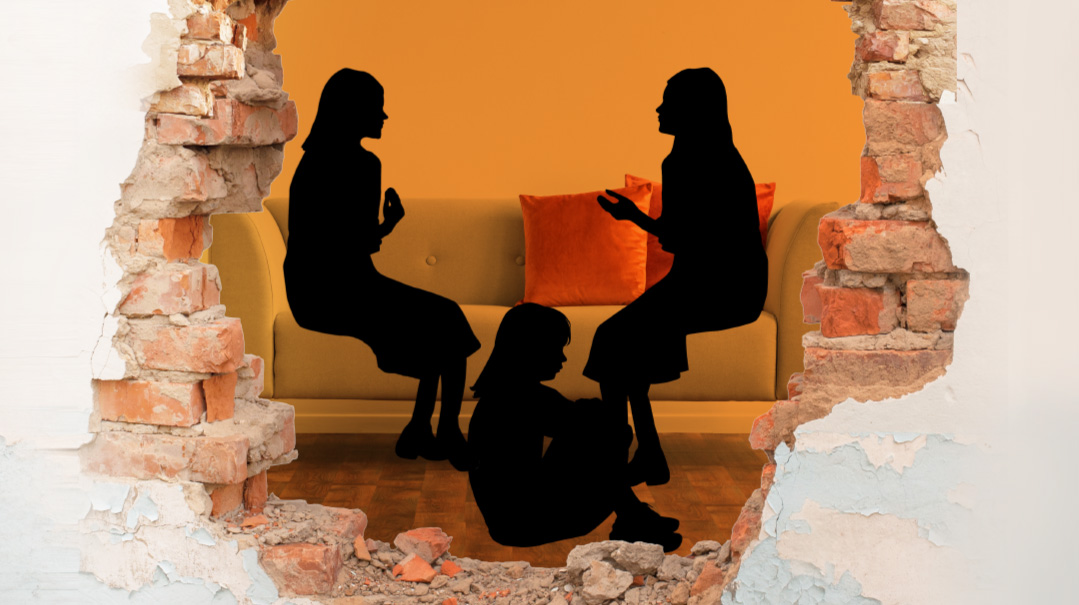“Who Decides If My Child Stays Back?”

I don’t want to antagonize my child’s school — but I know her best

Moderated by Faigy Peritzman
There are several girls’ schools in our neighborhood, but only one that really fits our family’s hashkafos and educational outlook. We admire the teachers and feel comfortable with the student body, but there have been bumps along the way. My third daughter is now entering first grade next year (or maybe she isn’t!) and I’m encountering a problem with the administration.
The school thinks my daughter should stay back for another year in preschool, claiming she’s immature and needs to learn to follow rules. I know my daughter very well. She’s an extroverted, enthusiastic, fun, creative kid — and this won’t change as she gets older. If anything, I think it would be better to get her through her school years as fast as possible. I feel strongly that the school’s suggestion isn’t on target, but while I’ve made my position very clear, they adamantly insist on moving forward with their plans.
This isn’t the first time I’ve encountered such a standoff. My oldest daughter is extremely shy and the school insisted she needed therapy, while I felt she simply needed to develop at her own pace.
I don’t want to antagonize the people who will be educating my daughters for the next decade or two. On the other hand, I feel like no one knows a child like her mother and I need to advocate for what I believe would be best for them. How do I balance these competing needs?
Rabbi Dovid Morgenstern is a menahel at Yeshiva Darchei Torah in Far Rockaway, NY. He’s also the founder and director of Torah Umesorah’s Mashgiach/Mechaneches Training program.
You're facing a particularly thorny situation.
The most important aspect in successful chinuch is that parents partner with their children’s school. Therefore, when choosing a school, it’s important that parents make sure they feel comfortable with the hashkafos, the hanhalah, the parent body, and the educational policies. They also need to look into how the administration works with parents when issues come up.
When you chose this school, most of the boxes checked off, but you’re still encountering a difficult dilemma, and this isn’t the first time you’ve found that the school’s decisions differed with your opinion. Such conflict is never healthy. If you don’t trust the school’s ability to make appropriate educational decisions for your children, you’ll lose confidence in the school, no matter how many other maalos it may have.
At this point, you need to honestly assess if the school you’ve chosen exhibits flexibility when it comes to parents’ input, or if they unequivocally make decisions regardless of parents’ opinions. You also need to do some serious introspection; are the issues you’re encountering indicative of the school’s culture, or is this a personal issue that you’re having with the hanhalah?
If you conclude that the problem is coming from the school’s unwillingness to consider parental opinion, then as difficult as this may sound, you must be prepared to leave. This is not the school for you, even though the hashkafos match yours.
Alternatively, if you don’t want to uproot your child from her friends and change her school, you would have to do a total about-face and choose to genuinely go along with the staff’s decisions. Continuing to harbor negativity toward the school will have an adverse impact on your children’s chinuch. Even if you don’t deliberately share your opinions with them, children are perceptive, and they’ll pick up on what you’re really feeling.
It’s certainly possible, though, that even in a school that takes parental feedback into account, educators may make decisions that parents strongly disagree with. What now?
Parents know their children best, and can be their kids’ strongest advocates. But it’s also essential to recognize that the school has a different vantage point. Your daughter’s teachers see her in a different setting from the home, and also have the experience that enables them to compare her to many other children of the same age. If they’ve assessed her and concluded that she’s lacking the skills needed to progress to first grade, you need to trust them.
It’s also worth pointing out that parents’ distrust of the system may be coming from negative experiences they may have had in school as children. This negative bias may interfere with what is best for the child. Please recognize that the educational world and methods employed have changed, in a very positive direction.
If you still feel you simply cannot accept the school’s opinion, it might be worthwhile to involve an outside third party, one whose opinion both you and the school will respect, and let them help you make this final determination. While this option may be costly, when it’s your child’s chinuch on the line, it pays to get to the bottom of things.
Of course, if you do take the route of a third-party evaluation, it’s important to present all the facts at hand, and not just one teacher’s opinion. Sometimes a teacher and child simply don’t click. A teacher may feel that this child is totally unmanageable whereas the same kid flourishes with a different teacher. In that case, the third-party evaluation is essential because it will help you see the bigger picture.
Remember: It’s your child who will gain if you strive to have a positive healthy relationship with the school. The benefits are immeasurable.
Wishing you only nachas.
Simi Yellen has been positively transforming homes through her popular parenting classes and private consultations for over 20 years. She is passionate about empowering parents to build Torah-true homes and strong parent-child relationships. Her series, “Raise the Bar Parenting,” enables parents to raise respectful, responsible, and cooperative children, while forging deep and connected relationships.
I feel for you. You’re stuck between the proverbial rock and a hard place.
On the one hand, this is the only school you feel hashkafically aligned with; on the other hand you disagree with their opinion of what’s best for your child. On the one hand, you want to be your children’s advocate; on the other hand, you don’t want to antagonize the people who are in charge of your child’s chinuch.
I’ve actually taught kindergarten/Pre-1A for a number of years. In most girls’ schools, the main skill of the year is learning to read. If a child hasn’t grasped how to recognize letters, assign sounds to those letters, and blend those sounds together to form words, in both Hebrew and English, she should not be advancing to first grade.
In my opinion, your daughter’s ability to read is the main criteria that should be used to decide whether or not she needs to stay back another year in preschool.
Why should we primarily consider her reading skills and not her behavior? Let’s look at the two main behaviors that the school is concerned about. First, your daughter is displaying a certain immaturity. Second, she needs to learn to follow rules.
I agree with you that her basic nature — both the positive and the negative — is not going to change so much as she gets older. Maturity cannot be rushed. It’s something that develops on a personal timetable, and that timetable may or may not mirror everyone else’s.
If your daughter was hysterically crying on a daily basis, or hurting girls left and right, or running around wild through the school or the classrooms, then that would be reason to keep her back, as these behaviors would indicate a maturity level way below that of a soon-to-be first-grader. But it sounds like in your daughter’s case, her main display of immaturity is that she doesn’t follow rules so well.
While the ability to follow rules is in part a function of her nature, it’s also a function of the morah’s classroom management capabilities. An effective teacher should be able to help motivate and teach a child to follow classroom rules. The fact that a child isn’t following rules doesn’t sound like enough of a reason to leave her back, if she is doing well academically, socially, and emotionally.
Were you aware of these issues throughout the year, or did the teacher spring this on you in June? If this is the first you are hearing of it, how bad could it have been? (In general, I think any issue that may be significant enough to leave a child back at any age should be discussed with parents during the school year, and not sprung on them in June, when it’s too late to work on it.)
I would tell the school that since your daughter is doing well academically, socially, and emotionally, you’d like her to progress to first grade. Furthermore, you should request that she be assigned a teacher with strong classroom management skills to best help her acclimate to following classroom rules.
Assure the school that you’re totally committed to partnering with the morah to help your daughter acquire this skill, and you would like to give her the opportunity to succeed in this area.
You are correct that no one knows a child like a mother. Therefore, it’s essential that you advocate for your daughter, which means standing strong with the administration while maintaining a respectful stance.
Wishing you much hatzlachah and much nachas.
Mrs. Gitti Horowitz, at present the secular studies assistant principal in the UMS of Bais Yaakov of Baltimore, has been involved in chinuch and parent education for over 30 years.
The decision of whether to hold a child back in school is one of the most emotionally charged decisions that parents and educators must make, and it’s often difficult to achieve mutual agreement. The popular adage that parents know best may be correct when it comes to the individual needs of their child, but things may change once there are other factors involved.
In your letter, you mention a few details regarding why you feel that your daughter shouldn’t be held back. I’ll address these points below.
The school would like your daughter to repeat a year in preschool to give her time to “mature and learn to follow rules.”
It’s important to understand that so many of the skills developed in preschool are key to enabling our children to be more successful learners as they go through school and life. In preschool, children improve their language skills so they can not only understand rules, but also communicate when they don’t understand them. In the preschool classroom, children develop greater ability to manage their emotions appropriately, enabling them to get along with peers and adults alike. They develop self-confidence and belief in their ability to succeed at new challenges. These skills are the basic foundation a child can build upon in her journey to find success through school.
You argue that your daughter is “an extroverted, enthusiastic, fun, and creative kid — and this won’t change as she gets older. If anything, I think it would be better to get her through her school years as fast as possible.”
This is a common mistake. Please understand that being extroverted, enthusiastic, fun, and creative are not contraindications to being a wonderful student and lifetime learner. You are very correct that her nature will probably not change, but with maturity and proper guidance, those same traits can be utilized to benefit your daughter and those around her. Those are the qualities we look for in our G.O. and gemach presidium, as well as our production heads. Conversely, these are also the qualities we see in our our class clowns and frequent office visitors. As such, the goal is to help her channel these traits appropriately.
Putting your daughter in first grade before she is ready will “get her through her school years faster,” but at what cost? School is a journey that requires forethought and planning so that each child can be successful socially, emotionally, and academically. Rushing a child through school could backfire and inadvertently create an academic journey filled with anxiety and angst.
Realistically, parents are generally not in a position to plan or navigate this journey alone. It’s true that you know your daughter better than anyone, but you don’t have the same insight and perspective as the educational staff when it comes to the teachers, curricula, and student dynamics, much less how your daughter interfaces with each of them. These are important variables that the school considers when making the decision to give your daughter another year of growth and maturity.
Being held back isn’t a punishment! Rather, it’s an opportunity to help her become her most successful self as she progresses through school.
If we were discussing a girl who had not been a successful student through elementary school, there might be reason to promote her to high school and have her finish school sooner. It’s rarely appropriate to hold a child back once she has started grade school; the benefit is seldom worth the price. But another year of preschool, which has much less of a social impact, can prevent the need to hold a child back later on, which would be far more upsetting.
One important piece of information you failed to mention is your daughter’s age in relation to her class. Often, when a school suggests that a child spend another year in preschool, it’s because that child is one of the younger children in the grade. Staying back lets them become one of the older ones in the grade, giving them the chance to be on more of an equal footing. In the large classrooms that we are zocheh to have today, being one of the older children often plays to a student’s advantage.
If this is not the case, and your daughter is one of the older children in the class, I suggest that you and the school together confer with an educational consultant. If the consultant agrees that your daughter should move on, she can then guide the school as to how to help her to be successful in that placement.
Much hatzlachah.
(Originally featured in Family First, Issue 808)
Oops! We could not locate your form.







